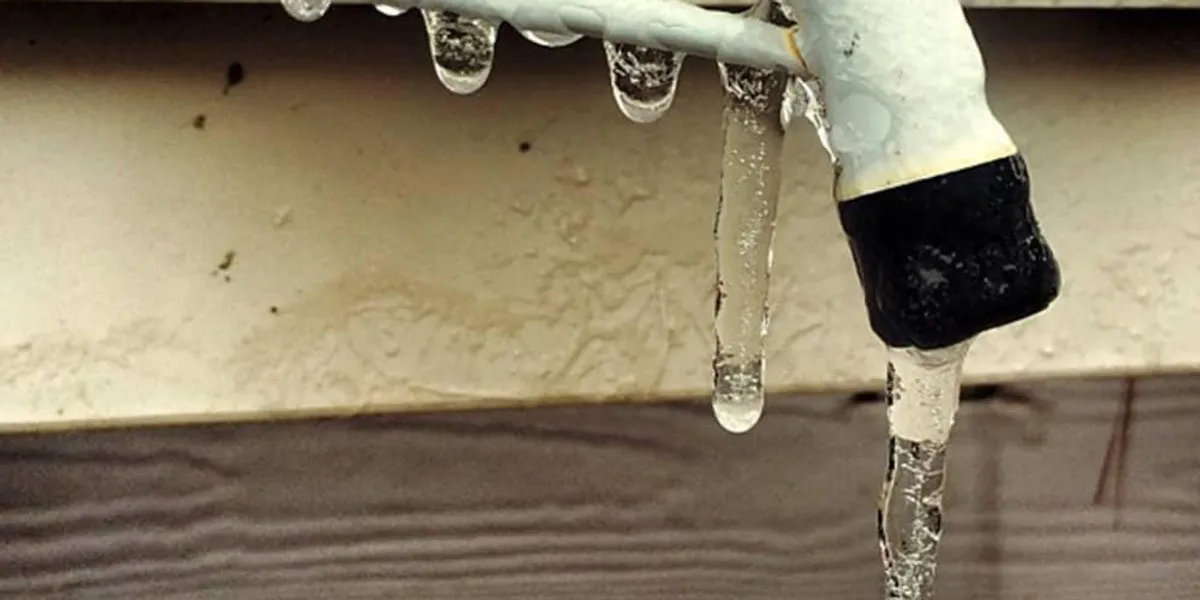Preventing Frozen Plumbing in Winter: Key Tips
Preventing Frozen Plumbing in Winter: Key Tips
Blog Article
In this article in the next paragraphs you'll find some really good resources on the subject of Prevent Frozen Pipes .

Cold weather can damage your plumbing, especially by freezing pipelines. Here's just how to stop it from occurring and what to do if it does.
Introduction
As temperatures decrease, the risk of icy pipes boosts, potentially resulting in pricey repairs and water damages. Recognizing exactly how to prevent frozen pipes is essential for house owners in chilly climates.
Prevention Tips
Protecting susceptible pipes
Wrap pipes in insulation sleeves or make use of warmth tape to secure them from freezing temperatures. Concentrate on pipes in unheated or exterior locations of the home.
Home heating strategies
Keep indoor rooms appropriately heated, specifically areas with pipes. Open closet doors to permit warm air to flow around pipes under sinks.
Exactly how to recognize frozen pipes
Seek decreased water circulation from faucets, unusual smells or sounds from pipelines, and visible frost on subjected pipelines.
Long-Term Solutions
Structural adjustments
Think about rerouting pipes away from exterior wall surfaces or unheated locations. Add added insulation to attic rooms, basements, and crawl spaces.
Upgrading insulation
Purchase high-quality insulation for pipelines, attic rooms, and wall surfaces. Correct insulation assists preserve consistent temperature levels and minimizes the threat of frozen pipes.
Safeguarding Outdoor Plumbing
Yard hose pipes and outside faucets
Disconnect and drain pipes yard pipes before winter. Install frost-proof spigots or cover exterior taps with protected caps.
Understanding Icy Pipelines
What creates pipelines to ice up?
Pipes ice up when revealed to temperatures below 32 ° F (0 ° C) for expanded durations. As water inside the pipes freezes, it broadens, putting pressure on the pipeline wall surfaces and potentially triggering them to burst.
Risks and damages
Icy pipes can lead to supply of water disturbances, building damage, and expensive repair services. Ruptured pipes can flood homes and create extensive structural damages.
Indications of Frozen Water Lines
Recognizing icy pipes early can avoid them from rupturing.
What to Do If Your Pipes Freeze
Immediate activities to take
If you presume icy pipelines, maintain faucets open to eliminate pressure as the ice thaws. Make use of a hairdryer or towels taken in warm water to thaw pipes slowly.
Verdict
Stopping icy pipes needs positive procedures and fast responses. By understanding the causes, indications, and safety nets, home owners can secure their plumbing during cold weather.
Helpful Tips to Prevent Frozen Pipes this Winter
UNDERSTANDING THE BASICS: WHY PIPES FREEZE AND WHY IT’S A PROBLEM
Water freezing inside pipes is common during the winter months, but understanding why pipes freeze, and the potential problems it can cause is crucial in preventing such incidents. This section will delve into the basics of why pipes freeze and the associated problems that may arise.
THE SCIENCE BEHIND FROZEN PIPES
When water reaches freezing temperatures, it undergoes a physical transformation and solidifies into ice. This expansion of water as it freezes is the primary reason pipes can burst. As the water inside the pipe freezes, it expands, creating immense pressure on the walls. If the pressure becomes too great, the pipe can crack or rupture, leading to leaks and water damage.
FACTORS THAT CONTRIBUTE TO PIPE FREEZING
Low Temperatures: Extremely cold weather, especially below freezing, increases the risk of pipes freezing. Uninsulated or Poorly Insulated Pipes: Pipes located in unheated areas, such as basements, crawl spaces, or attics, are more prone to freezing. Insufficient insulation or lack of insulation altogether exacerbates the problem. Exterior Wall Exposure: Pipes running along exterior walls are susceptible to freezing as they encounter colder temperatures outside. Lack of Heating or Temperature Regulation: Inadequate heating or inconsistent temperature control in your home can contribute to frozen pipes. PROBLEMS CAUSED BY FROZEN PIPES
- Pipe Bursting: As mentioned earlier, the expansion of water as it freezes can cause pipes to burst, resulting in significant water damage.
- Water Damage: When pipes burst, it can lead to flooding and water damage to your property, including walls, ceilings, flooring, and personal belongings.
- Structural Damage: Prolonged exposure to water from burst pipes can compromise the structural integrity of your home, leading to costly repairs.
- Mold and Mildew Growth: Excess moisture from water damage can create a favorable environment for mold and mildew growth, posing health risks to occupants.
- Disrupted Water Supply: Frozen pipes can also result in a complete or partial loss of water supply until the issue is resolved.
WHY CERTAIN PIPES ARE MORE PRONE TO FREEZING
- Location: Pipes located in unheated or poorly insulated areas, such as basements, crawl spaces, attics, or exterior walls, are at higher risk of freezing.
- Exterior Pipes: Outdoor pipes, such as those used for irrigation or exposed plumbing, are particularly vulnerable to freezing as they are directly exposed to the elements.
- Supply Lines: Pipes that carry water from the main water supply into your home, including the main water line, are critical to protect as freezing in these lines can affect your entire plumbing system.
- Underground Pipes: Pipes buried underground, such as those connected to sprinkler systems or outdoor faucets, can be susceptible to freezing if not properly insulated.
https://busybusy.com/blog/helpful-tips-to-prevent-frozen-pipes-this-winter/

As a passionate reader on Helpful Tips to Prevent Frozen Pipes this Winter, I was thinking sharing that excerpt was appropriate. If you please take the time to share this blog posting if you enjoyed reading it. Thank you for being here. Please check our site back soon.
Schedule A Service Report this page